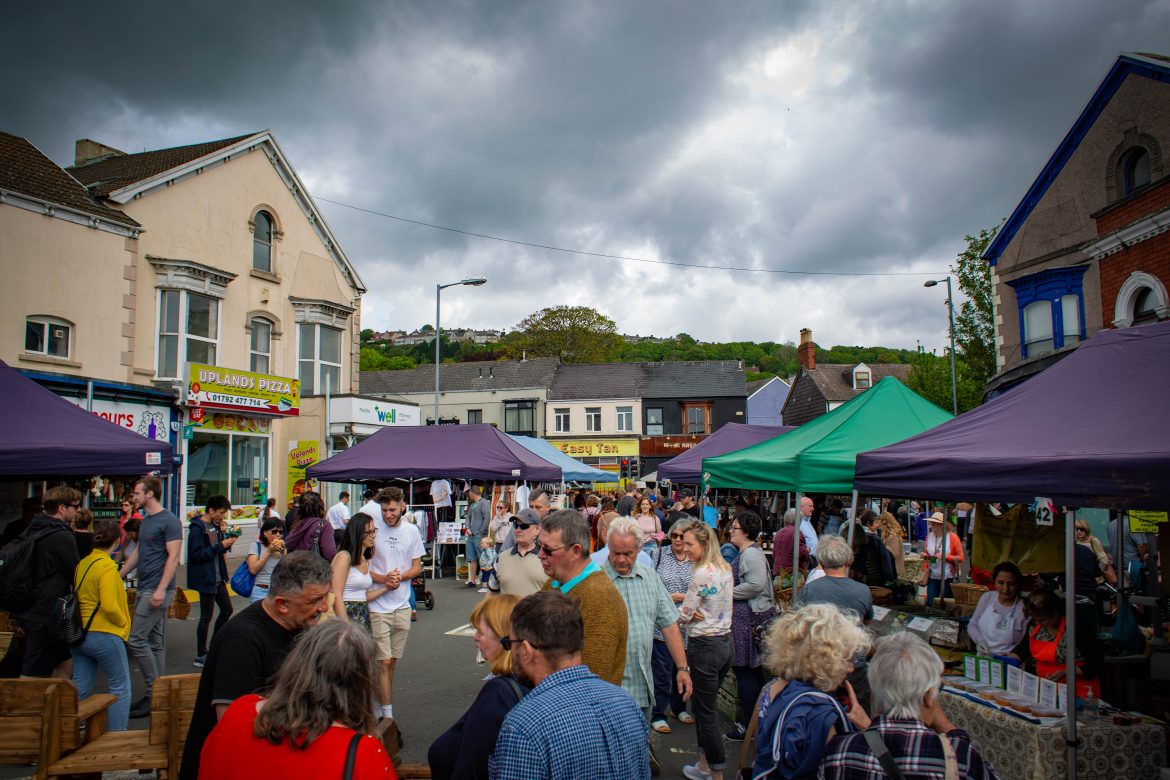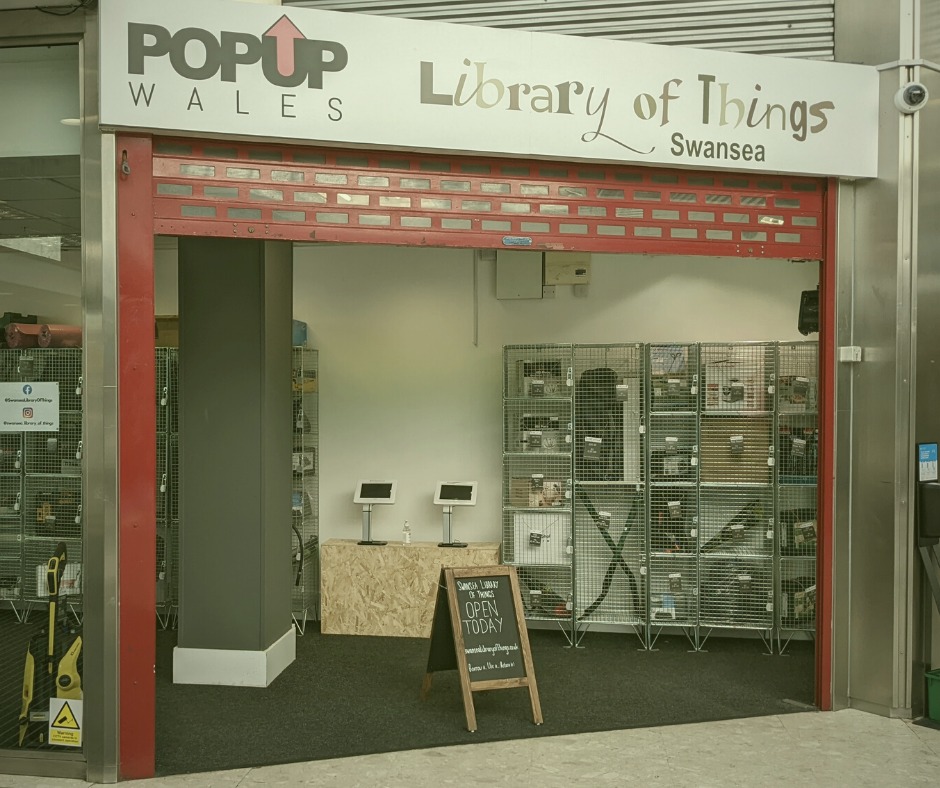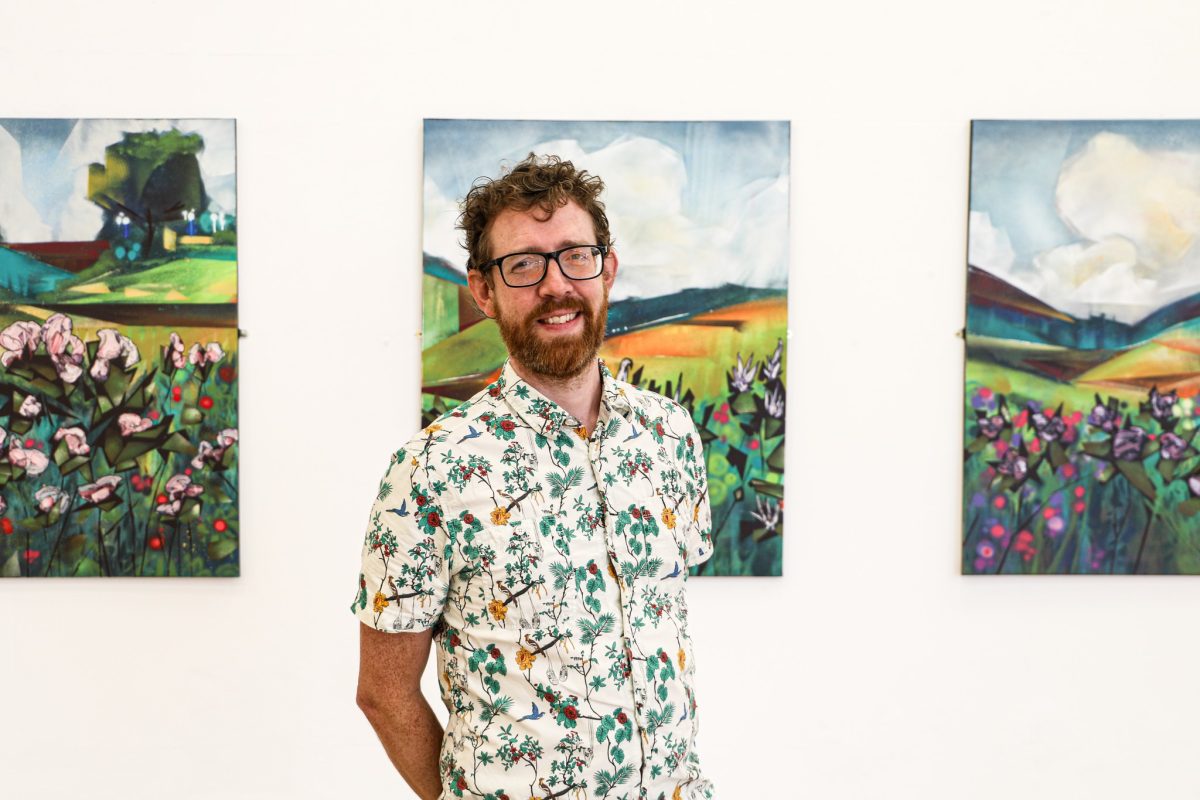
Street Markets and Pop-Ups
Ben Reynolds, Director of Urban Foundry
Our town centres' social and commercial vitality is suffering from a perfect storm of disastrous car-oriented planning, poor public transport, weak active travel approaches, out-of-town retail, insufficient town centre residential populations, internet shopping, and an uncertain post-Covid world of hybrid working and spiralling costs. Empty shops and barren public spaces are two major symptoms of the malaise.
We need new ways of doing things and to rediscover some old ones too. The great Jane Jacobs characterised four key qualities of a 'good town': density, short perimeter blocks, varied buildings, and mixed-uses. I would add a fifth: quality public spaces. This article focuses on quick, fast, light, and (relatively) cheap measures that the Urban Foundry has taken to tackle two of these: mixed uses and public spaces.
Firstly, vibrant street markets are a fixture on the Continent, but something we have lost the habit of in the UK. A series of street markets have been created in Swansea Bay to activate public spaces that are otherwise car-dominated or under-utilised, creating temporary ‘people spaces’ and providing opportunities for small local artisan businesses.
Swansea Bay Street Markets social enterprise began with the award-winning Uplands Market in 2013 and now holds monthly markets across Swansea Bay at Marina, Mumbles, Port Talbot, and Pontardawe. Research by the University of Wales Trinity Saint David business school found:
- 70% of market shoppers were only in the area for the market;
- most spend at least £10 - £20 in local shops (in addition to spending at the market); and
- the market improved perceptions of the area.
Secondly, PopUp Wales is bringing temporary life to empty shops, with similar impacts: improving footfall, dwell time, perceptions, and spending. Pop-up use can also make spaces more lettable in the longer term.
PopUp Wales matches temporary retail spaces with individuals, organisations, and businesses who want flexible, short-term, affordable space to trial ideas. Pilots took place in 2022 in Swansea and Bridgend, supported by their respective Councils, Welsh Government’s Transforming Towns fund, and (in Bridgend) UK Government's Community Renewal Fund.
In Bridgend, PopUp Wales supported 30 small businesses and 20 voluntary organisations. In Swansea, 15 pop-up spaces have included civic and third-sector users, businesses, various arts projects, studio spaces, pop-up exhibitions, and installations.
Library of Things is a pop-up in Swansea run as a social enterprise to encourage borrowing to reduce the energy and resources to create rarely-used items and make expensive items affordable for more people.

Fresh Creative CIC exhibited their work in a pop-up in Swansea, which put them in front of audiences they could not normally access, and they are now seeking a longer-term city centre base as a result.

In a time of high vacancies for many towns and cities, we need as many tools as we can in the box for regeneration. Although it's not a silver bullet, pop-up/meanwhile space has become far more prominent in the post-Covid era as a way of addressing our problems.
Why not start something up in your town?
Key Ingredients for Successful Markets and Pop-Ups
Understanding how your town or city works
Markets and pop-ups work well when we understand how and why people use space in urban areas and what will (and won't) work where. They cannot be magically dropped in anywhere.
Buildings need to be in reasonable condition
Structurally sound and watertight buildings are needed for it to be manageable to make them useable, such as largely (basic) compliance works, simple welfare facilities, and cosmetic upgrades. It also helps if some modest capital funding is available to assist with these works – pop-up schemes are now eligible as a cost heading under the Welsh Government’s Transforming Towns funding stream.
It has to be the right use for a short-term tenure
Pop-ups are not a free means of getting long-term leases. Pop-ups are short-term by nature, so plan for it being taken away again at relatively short notice, or be prepared to pay a commercial market rate for the space in the long run if you want to stay.
Some creative thinking
There is variation, and some are decidedly at the cheap and cheerful end of the spectrum, but there needs to be some creativity and thought to make spaces look good and work on low budgets and with short timescales. You need something that can be up and running quickly that will work.
There still needs to be some viability to them
Although it takes away rental costs, there are still some costs, notably utilities, perhaps staffing (though volunteers run some), business rates if applicable, and stock/marketing/insurance and similar.
Good relationship-building with landlords is essential
Pop-ups are not as well-understood in this part of the world as elsewhere. The landlord must play ball for them to be viable.
There needs to be understanding and ‘buy-in’ from the local authority
The local authority needs to ‘get’ what you are trying to achieve and to be supportive.

